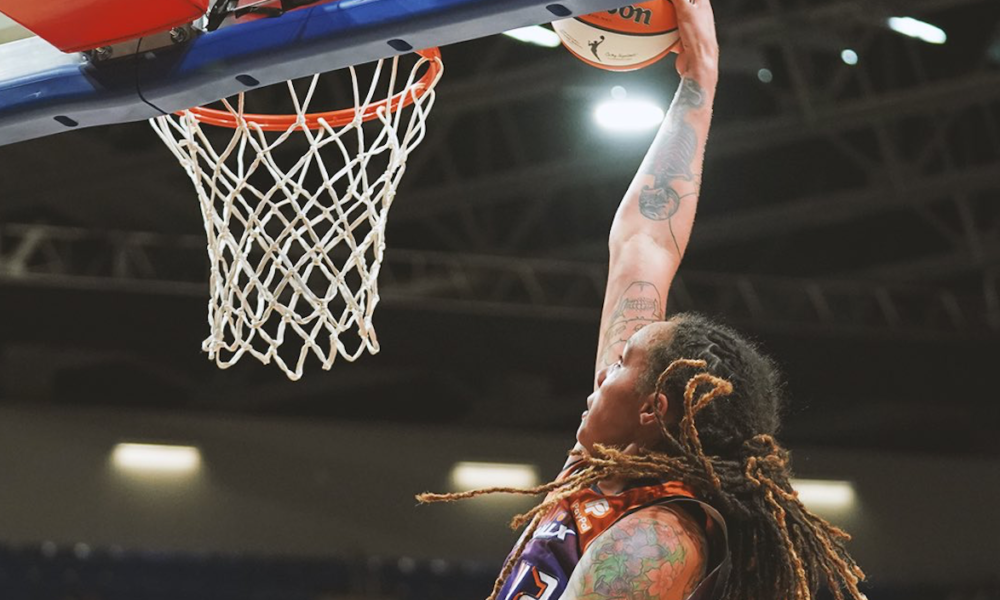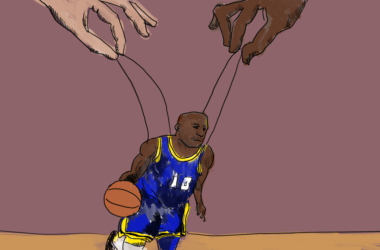When you hear the name Brittney Griner, you no longer reminisce on her superstar career in the Women’s National Basketball Association (WNBA). You don’t reflect on her remarkable college career with Baylor, or her seven All-Star seasons with the Phoenix Mercury. Griner’s deserved legacy as an outstanding basketball player and outspoken political activist gets thrown to the side when you sit back and remember the reality of her situation: Brittney Griner has been detained in Russia since February.
According to Russian officials, Griner was detained at the Moscow airport after a luggage search found vape cartridges containing oil derived from cannabis. Following her initial arrest, her pre-trial detention was extended four separate times until a trial date was ultimately set for July 1. On Aug. 4, Griner was found guilty of drug charges and sentenced to nine years in prison. On Oct. 25, a Russian judge rejected Griner’s appeal after reviewing it for just 30 minutes. Less than a month later, Griner was sent to a remote Russian penal colony to begin serving her sentence. The penal colony in question is IK-2 in Mordovia––a notoriously harsh prison, even by standards of the Russian carceral state.
Since Russia’s invasion of Ukraine, the state of American-Russian relations has severely restricted American efforts to bring Griner home. With Russian President Vladimir Putin’s prolonged escalation of the conflict and the United States’ continued support for Ukraine, it is clear that Griner’s wrongful detainment is partly for political reasons. Not only has Griner been weaponized as a political pawn, but the Russian authorities’ deep-seated hostility towards her identity as a Black and queer woman has placed her in even graver danger.
The question many have asked is why was Griner in Russia in the first place? Although Griner is one of the highest-paid players in the WNBA, she was able to make almost five times her salary with UMMC Ekaterinburg––a former member of the EuroLeague. Furthermore, playing in Russia is commonplace for WNBA players during the off-season as it presents the opportunity to supplement their salaries. Despite the WNBA’s progress in boosting the league minimum to $57,000 USD with the league average sitting at $102,751 USD, teams are severely restricted by the $1,379,200 USD hard cap, pushing them to carry fewer players and forcing stars to sacrifice the million-dollar salaries they deserve. For perspective, Lebron James alone makes $119,500,000 USD per year.
Unrestricted by a salary cap, Russia provides players with salaries exceeding $1 million USD––almost quadruple the salary of Jewell Loyd, the highest-paid WNBA player. Players are offered resources and amenities that are simply unavailable to them in the WNBA, as many Russian teams are funded by government municipalities and owned by Russian oligarchs who have the freedom to treat their athletes with the “luxury” their National Basketball Association (NBA) counterparts are used to.
While activism across women’s basketball continues to be both pervasive and unrelenting, the same cannot be said for the NBA––the league with a dominating societal influence. Additionally, the question of whether or not the U.S. government is doing enough to bring Griner home still hangs in the balance. Trevor Reed, a former U.S. Marine who was freed from Russian prison via prisoner exchange this past April, believes the White House had the ability to get Griner home “extremely fast” and has elected not to do so. At the end of the day, Griner’s continued detention cannot be blamed on a single institution––it is a systemic failure of all of America.
Griner should be in the news for her feats as a remarkable athlete. Her National Collegiate Athletic Association (NCAA) men’s and women’s record-setting 3,203 points and 736 shots with Baylor. Her NCAA and WNBA championships. Her not one, but two Olympic gold medals. Griner should be in North America, continuing on a trajectory that will enshrine her name as one of the world’s basketball greats. We cannot say unequivocally that if Griner were an NBA player of the same calibre, she would be home by now, but there is one thing we do know for certain––she never would have been in Russia in the first place.









